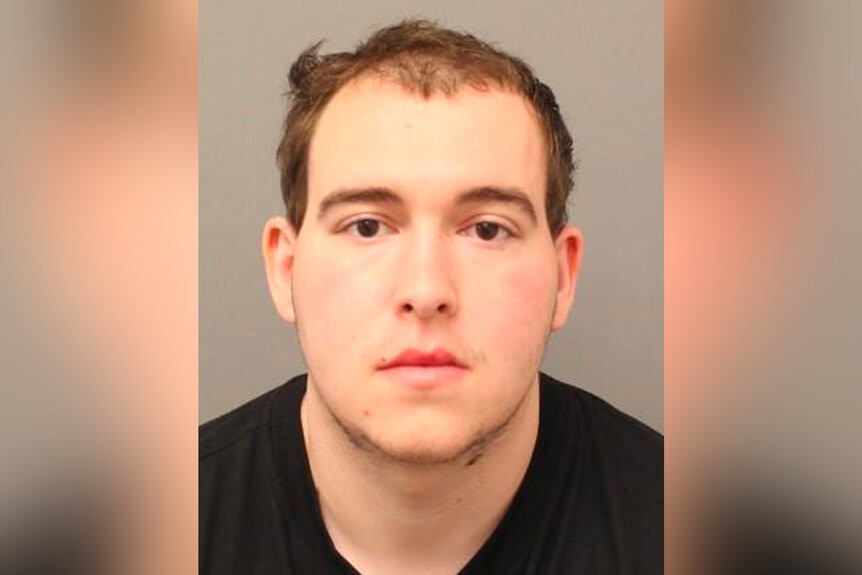Create a free profile to get unlimited access to exclusive videos, breaking news, sweepstakes, and more!
Why Do People Hire Hitmen To Do Their Evil Bidding? The Reasons Behind Murder-For-Hire
Despite Hollywood tropes, contract killings aren't reserved only for mobsters and high-profile targets. In fact, murders-for-hire are closer to home than many think.
Often, when hearing words like “contract killing” or “murder-for-hire,” it’s easy for the mind to conjure up images of Tony Soprano or some secret underground organization that exists separate from our own non-murderous lives. But the truth is, the threat lurks closer to home than many perceive, as shown in Oxygen's new series "Blood & Money," premiering Saturday, March 11 at 9/8c.
People who hire others to commit murder believe they have the advantage of putting a distance between themselves and their target(s), allowing them to better evade detection by authorities. With internet access and the rise of cryptocurrency — often used in an attempt to eliminate the paper trail — murder-for-hire seems more accessible than ever.
But the internet is also why so many contract killings are being thwarted.
Take, for example, Wendy Wein, the Michigan woman who sought out a hitman using the website “Rent-A-Hitman,” which — unbeknownst to Wein — transpired to be a parody site. While the website's creator alerted authorities, Wein continued to take steps, believing the site would help have her ex-husband murdered
“If the intent wasn’t so serious here, this would almost be comical, but it’s not,” said the judge at Wein’s January 2022 sentencing on charges of solicitation for murder and using a computer to commit a crime. Of course, unlike some “conventional homicide,” a murder-for-hire demonstrates planning and premeditation.
In June, Leif Hayman allegedly used the same website in an attempt enlist someone to kill his mother-in-law, asking the website creator to “kill that b***h.”
“I want her gone now,” Hayman allegedly told the site’s creator. “Too much that I don’t like about her; she’s controlling my wife.”
Hayman pleaded not guilty and is awaiting trial on the charges.
Though murder-for-hire has “not received empirical attention” in research on criminal homicide, according to studies by the University of Tennessee - Knoxville, much can be gleaned from 2003 studies by the Australian Institute of Criminology, which show that the most common motive for contract killing was domestic.
The research examined 163 cases in total, 69 where the target was killed and 94 where the plots were intercepted before death could occur.
“The most common motive or reason for hiring the services of a hitman was in relation to the dissolution of an intimate relationship,” said Toni Makkai, the institute’s acting director. This was true for both “completed” and “attempted” contract killings, making up 19% of all cases.
Wanting a partner out of the picture would be the case for the recently-executed Robert Fratta, a former cop twice convicted of hiring two assassins to fatally shoot his wife in the midst of their contentious divorce back in 1994.
It was also why Tallahassee woman Gretchen Buselli was sentenced to 15 years for trying to have a former high school friend kill her estranged husband as the pair hashed it out in court over custody of their children.
“Unlike most domestic homicides that appear to occur at the ‘spur of the moment,’ the cases that fall within this category of contract killing seem to involve a level of premeditated rage that is controlled and channeled into planning the killing,” said Makkai. “Some may even argue that the instigators in such cases are ‘more obsessive.’”
Domestic cases often also included “an obsessional or extreme desire by one sexual intimate partner to control the other partner” or “in order to prevent him/her from pursuing a relationship with someone else or in revenge for having done so.”
The second most common motive for murder-for-hire, ranking at 17%, was “unknown," according to the Australian Institute of Criminology. Trailing closely behind at 16%, money and other financial reasons were the third leading motive.
Monetary gain would be evident in the case of Texas “Black Widow” Cynthia Phillips, who was accused of having her boyfriend killed for a $100,000 life insurance policy, as featured in a 2020 episode of Oxygen’s Snapped. Phillips was also implicated in her former husband’s death and another husband’s attempted murder-for-hire, allegedly with plans to cash out a $250,000 life insurance policy. She pleaded guilty and is currently behind bars.
Although 2020 studies show male offenders are seven times more likely than females to commit murder, the gap is much smaller between genders regarding the solicitation of murder.
Females and males planning the contract killings were “about equal,” and there was “little difference” between male and female targets, according to the institute. Females made up 37% of those carrying out the actual murders.
But as for why people seek out third parties to carry out their desire to kill, the fourth leading motive for soliciting murder, at 13%, was to silence a witness, per the Australian Institute of Criminology.
Jon Mark Wilson, for example, was sentenced to 10 years in federal prison for trying to hire someone to kill a child, for whom he was facing sex abuse charges back in 2019. According to federal prosecutors, Wilson also hoped the boy’s death would prompt the minor’s mother to take her own life.
In September, convicted child molester Chandler John Cardente was charged with offering $200 cash and tattooing equipment for someone to “eliminate” a 12-year-old girl at the center of his child sex abuse case — a plot foiled by state police. Cardente is currently awaiting trial.
However, eliminating intimate partners, financial gain, and witness suppression were not exclusive motives. As reported by Oxygen, Beverly Hills man Scott Berkett pleaded guilty to paying $13,000 in Bitcoin to have a woman killed after she rebuffed his advances.
“Revenge” made up 10% of the motives behind attempted and completed contract killings, while “drugs” made up 6%, according to the institute.
“It seems that in [revenge] cases, the target has ‘wronged’ the instigator in some way or other,” according to Makkai.
With the internet providing more access to murder-for-hire schemers, federal agents have consistently cracked down on the dark web, where many scam sites advertise their services.
According to a 2020 report by the New York Times, there are phony websites offering an assortment of homicidal services, including fatal shootings for $15,000. And while there have been no reported murders that have actually occurred from inquiries to these sites, the anonymous creators have received would-be plotter’s money, believing the plotters won’t go to authorities because to do so would be to admit their murderous plans.
“It’s a fantastic opportunity to defraud people because you give them just enough sense of danger,” Emily Wilson, head of Terbium Labs, told the New York Times.
The FBI continues to combat murder-for-hire, which became a recognized federal crime in 1958.
“As with the rest of the bureau’s work, our ultimate goal in murder-for-hire cases is prevention,” according to the FBI. “We maximize our resources by working many cases jointly with local and state authorities through our 35 Violent Crime Task Forces nationwide and by tapping into federal racketeering laws, our undercover and surveillance capabilities, and our staple of informants.”
To watch "Blood & Money," tune in to the premiere on Oxygen March 11 at 9/8c.

























